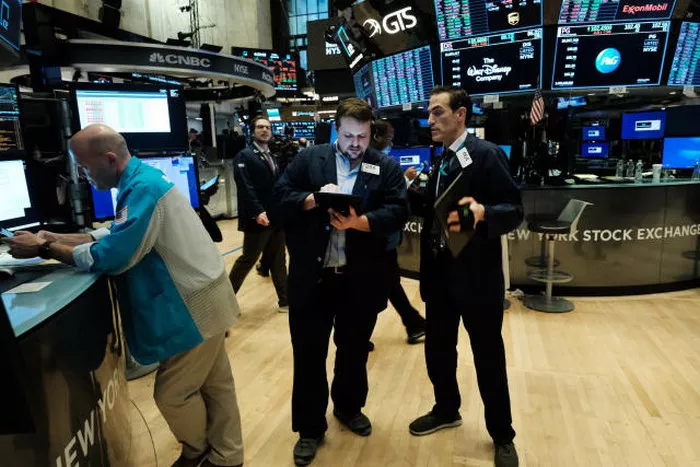In the dynamic world of cryptocurrency trading, Binance has established itself as a leading platform offering a wide range of trading options, including futures contracts. Among these offerings are perpetual contracts, a popular choice for traders seeking flexibility and exposure to various digital assets. In this article, we delve into the intricacies of Binance Futures perpetual contracts, exploring the duration and considerations associated with holding these contracts over time.
Understanding Binance Futures Perpetual Contracts
Binance Futures perpetual contracts are derivative instruments that allow traders to speculate on the future price movements of digital assets without an expiration date. Unlike traditional futures contracts, which have fixed expiration dates, perpetual contracts are designed to mimic the spot market, providing continuous trading opportunities.
The perpetual nature of these contracts means that traders can hold positions for an indefinite period, provided they maintain adequate margin levels and comply with Binance’s trading rules and regulations. This flexibility allows traders to capitalize on short-term price fluctuations or adopt long-term trading strategies, depending on their objectives and risk appetite.
Factors Affecting Holding Duration
Several factors influence the duration for which traders may hold Binance Futures perpetual contracts. One key consideration is the market outlook and the trader’s investment thesis. Traders may choose to hold positions for extended periods if they anticipate sustained bullish or bearish trends in the underlying asset.
Additionally, risk management plays a crucial role in determining holding duration. Traders must assess their risk tolerance and set appropriate stop-loss orders to mitigate potential losses. Factors such as leverage usage, position size, and market volatility can impact the viability of holding positions over the long term.
See Also: Can I sell futures before expiry?
Market Volatility and Position Management
Market volatility is inherent in the cryptocurrency market and can significantly impact the duration for which traders hold Binance Futures perpetual contracts. High levels of volatility may lead to rapid price movements, triggering liquidations or margin calls for leveraged positions.
Traders must closely monitor market conditions and adjust their positions accordingly to manage risk effectively. Implementing risk management strategies, such as trailing stop-loss orders or profit-taking targets, can help traders navigate volatile market environments and optimize their holding duration.
Funding Rates and Funding Mechanism
Binance Futures perpetual contracts employ a funding mechanism to ensure the alignment of contract prices with the spot market. Funding rates, which are periodically exchanged between long and short positions, incentivize traders to maintain balance in the perpetual contract market.
The funding rate mechanism can affect the cost of holding positions over time. Traders holding positions for extended periods may incur funding costs or receive funding payments depending on the prevailing market conditions. Understanding how funding rates impact holding costs is essential for traders seeking to optimize their position management strategies.
Leverage and Margin Considerations
Leverage amplifies both profits and losses in futures trading, influencing the duration for which traders hold positions. While leverage enables traders to control larger positions with a smaller amount of capital, it also increases the risk of liquidation if margin levels fall below the required threshold.
Traders utilizing high levels of leverage may need to monitor their positions more closely and adjust their holding duration accordingly. Maintaining sufficient margin levels and avoiding excessive leverage can help mitigate the risk of liquidation and provide greater flexibility in holding futures contracts over time.
Regulatory and Tax Implications
Regulatory considerations and tax implications also play a role in determining the holding duration of Binance Futures perpetual contracts. Traders should familiarize themselves with the regulatory environment in their jurisdiction and ensure compliance with applicable laws and regulations.
Additionally, traders may need to consider the tax treatment of profits and losses generated from futures trading activities. Holding positions for longer periods may have different tax implications compared to short-term trading activities. Consulting with tax professionals or legal advisors can provide clarity on the tax implications of holding futures contracts over time.
Conclusion
In conclusion, the duration for which traders can hold Binance Futures perpetual contracts is influenced by various factors, including market outlook, risk management, funding rates, leverage usage, regulatory considerations, and tax implications. While the perpetual nature of these contracts offers flexibility and continuous trading opportunities, traders must carefully assess their trading strategies and risk tolerance.
By monitoring market conditions, implementing effective risk management strategies, and staying informed about funding rates and regulatory requirements, traders can optimize their holding duration and navigate the complexities of futures trading on Binance. Whether adopting short-term or long-term trading strategies, maintaining discipline and diligence is essential for achieving success in the cryptocurrency derivatives market.


